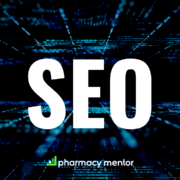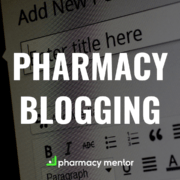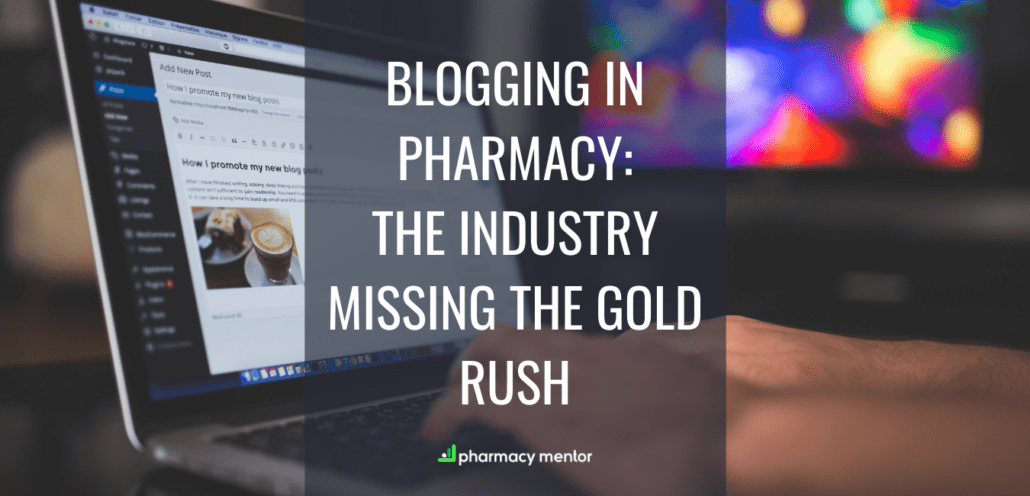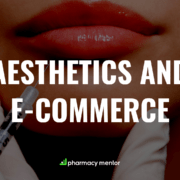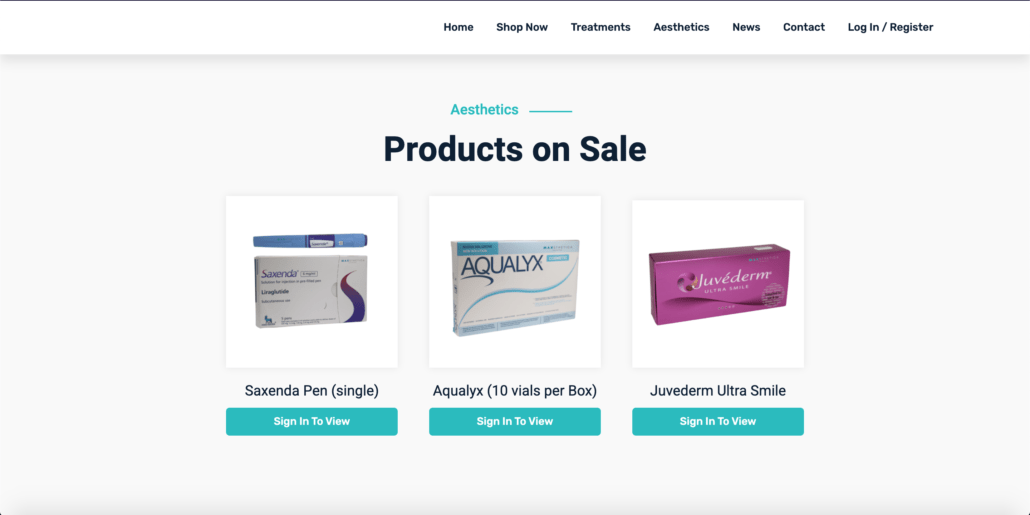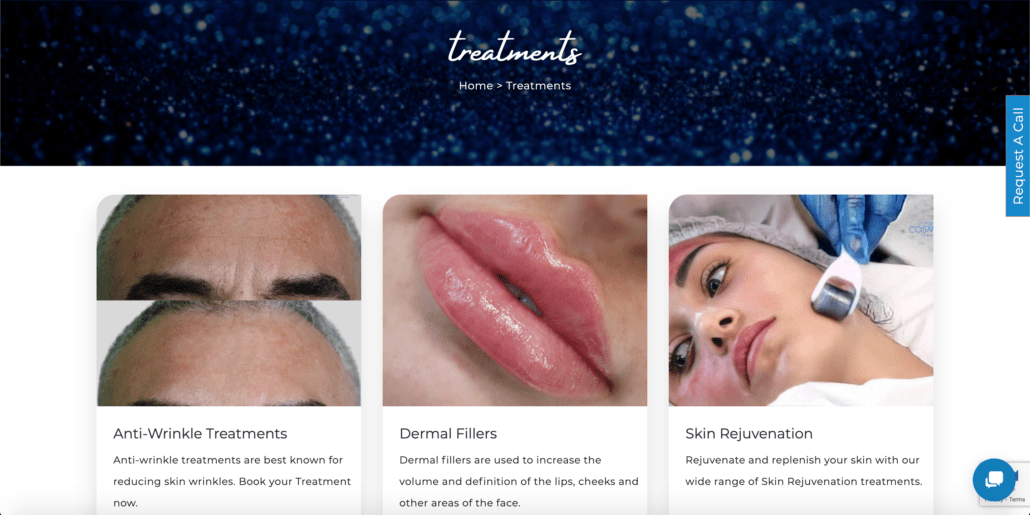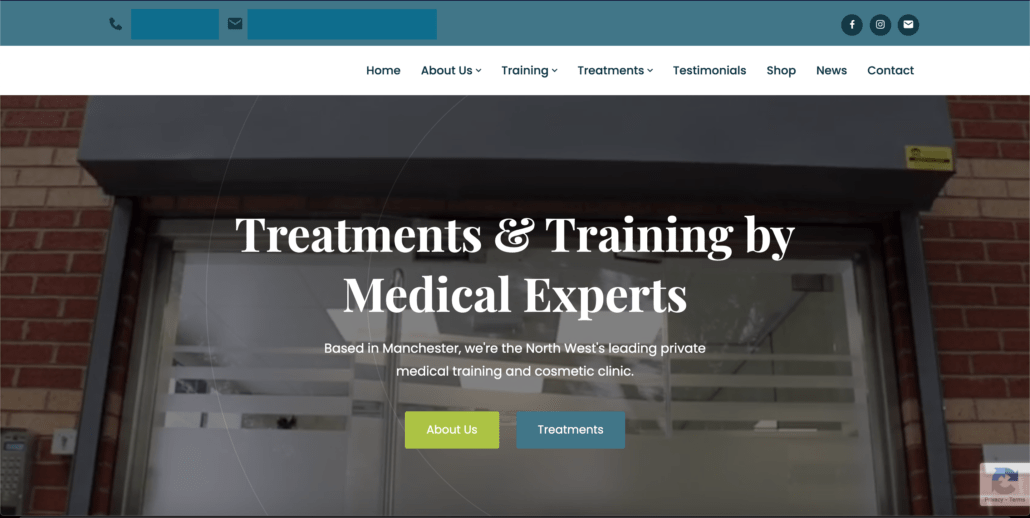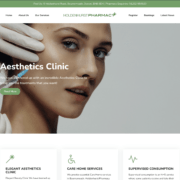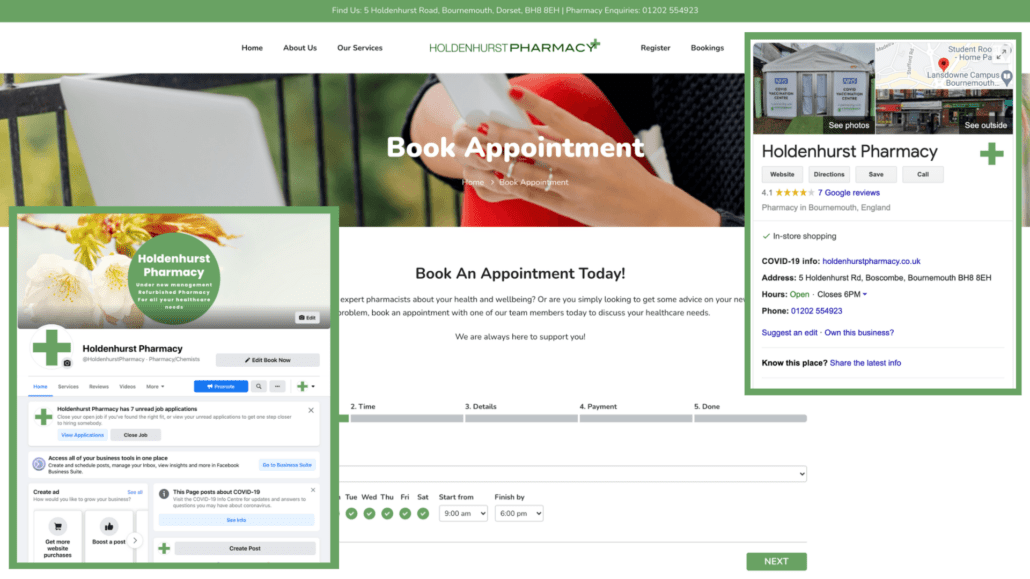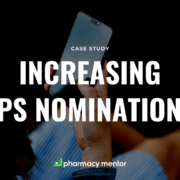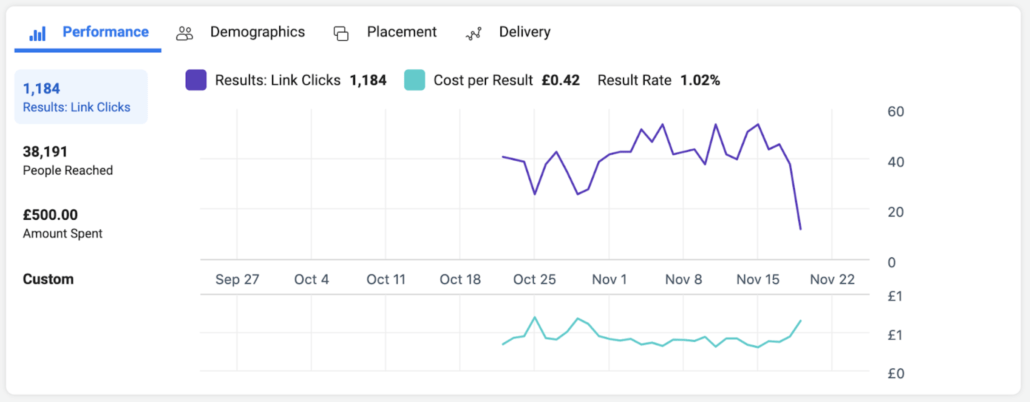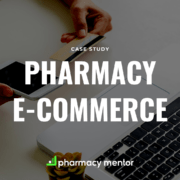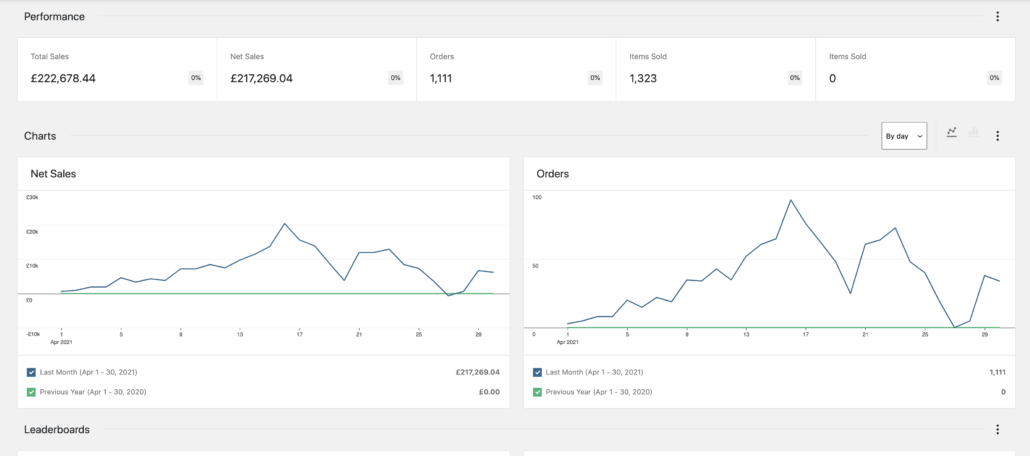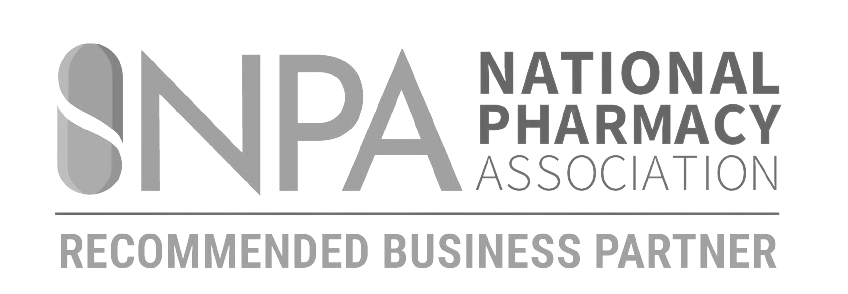In our recent article, Blogging for Pharmacies: The Industry Missing the Gold Rush, we explored the power of online content. In this article, we’re exploring getting that content in front of people. One of the most effective ways of doing that is optimising your content for search engines like Google.
Before we begin, check out these stats demonstrating the importance of using SEO to get your pharmacy seen on Google.
- The #1 position on Google gets 32% of all clicks. (Backlinko.com)
- The top 3 Google search results get 75.1% of all clicks. (Backlinko.com)
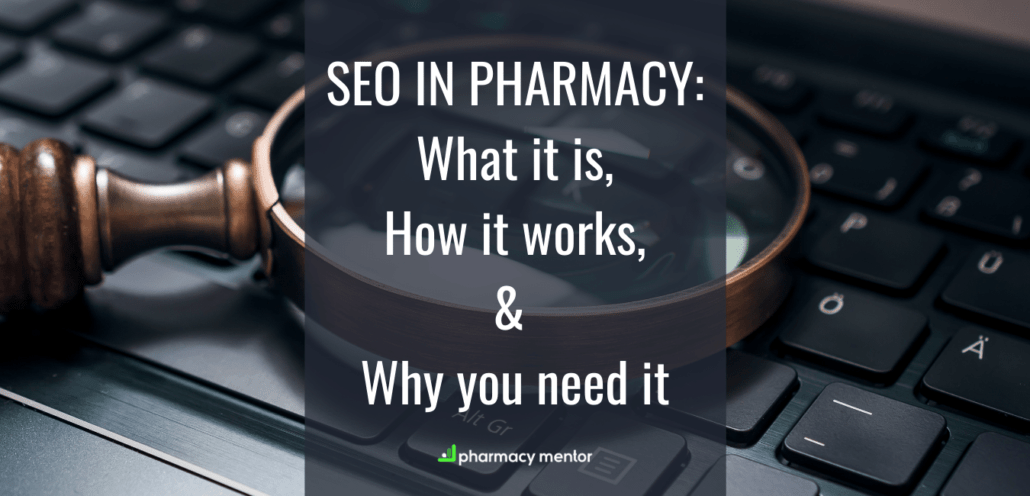
What is SEO, and what does it do?
What is SEO?
A search engine like Google has a checklist so that the web pages it recommends give a great user experience. The search engine recommends pages based on how well they score on that checklist. Put simply, Search Engine Optimisation is the process of making a web page more likely to be ranked higher by scoring well on that checklist.
Going through all the trouble of creating a website and filling it with content, only for nobody visiting the site sounds like a pointless exercise. Unless you deploy SEO as part of your digital strategy, I imagine this is your experience of having a website.
But you wouldn’t be alone. This is what the majority of the Internet looks like. Especially for pharmacy websites.
90.63% of all pages get zero traffic from Google. 5.29% of them get ten visits per month or less. (ahrefs.com)
What does SEO do?
Pharmacy owners we speak to about websites typically all have the same, templated website with little to no functionality. If you bought a $50 Rolex watch, would you be surprised if it stopped working after a month? You get what you pay for. And it’s the same with websites.
Buying a website “because you think you should”, with no plan for what it does or how it works? You’ll opt for the cheapest option. And why wouldn’t you? You have no idea what you want the website to achieve. Bearing no other factors in mind other than “having a website”, you choose the cheapest route to goal.
Ok, so you have a website. Now what? The only time it shows up is when people are searching for your pharmacy by name. Which is something, at least. It’s better than it showing someone else. But these people searching for you by name are already your customers. Your website isn’t attracting new visitors. And that’s the whole purpose of SEO. Attracting new business.
On-Page SEO vs Off-Page SEO
SEO can get incredibly complicated, incredibly fast. And you’re a business owner, not a marketer. You don’t care about those complexities. Let’s explain so you can see the big picture without needing any fine print.
Think of Google as a Visitor Information Centre for the town/city you’re in. When a person searches on Google, it’s just like asking the guide behind the information desk a question.
Such questions might be:
- “Where can I find the nearest pharmacy”
- “How to safely get rid of earwax”
- “Where can I get a travel vaccination?”
For the guide to recommend you, they must know about the thing you want referrals for. It’s a bit like rules in a game. They’ll only recommend you for the things you’ve told them about.
You’re not the only player in the search engine game
Now, you’re not the only one who wants recommendations from the guide. Everyone in town wants visitors. So the guide uses a system. Everyone must create content they think will help the guide solve people’s problems.
Let’s use books as a substitute for websites, to highlight the point. You want to promote your Ear Wax Removal service. So you write a book called “How to remove ear wax safely – A Pharmacist’s Guide.” Over the road, an Ear Wax Clinic has written a book called “Ear Wax Removals – Book Appointments Now”. And on the other side of town, another pharmacy has written a book called “Cheap Ear Wax Removal.”
The guide reads these books and, based on how easy it was to read, how helpful it thinks the book is, and how much information the book had in, the guide ranks your book against the other books that other businesses have given it. This is on-page SEO.
So how do the rankings work?
Imagine you are the guide.
Which one would you recommend to people? It depends, right? If they’ve asked for “Cheap Ear Wax Removal”, on the title of the book alone, you’d recommend in this order:
- Cheap Ear Wax Removal book
- Ear Wax Removals – Book Appointments
- How to remove ear wax safely – A Pharmacist’s Guide
That being said, SEO is not determined by the title alone. This order could be different if the content in the second options was optimised for that search term. There are also other factors that could change these positions around, such as cookies and your location. You see, it’s tricky!
If they asked the guide How to safely remove Ear Wax, you’d likely recommend the complete opposite order.
Titles that contain a question get 14.1% more clicks vs. titles that don’t. (Backlinko.com) Why? Because most people have a question in their mind when they search online. Seeing the question they’re asking inspires confidence they’ll find the answer that applies to them.
Bear in mind, you’re not the only guide in town. Ultimately, if people don’t think your recommendations are any good, they’ll use another guide.
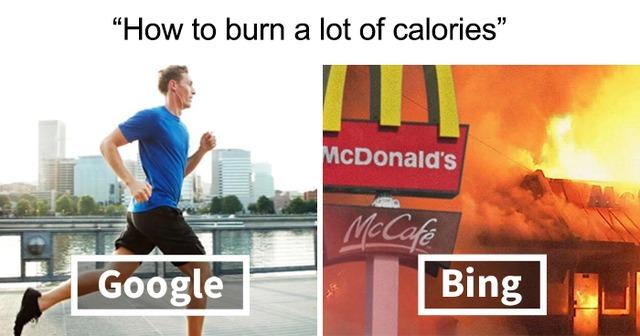
Search Engines monitor visitor’s behaviour
The Google guide recommends your content based on its own initial impression, but it absolutely takes user feedback on board. If it recommends your book, and someone immediately comes back and says they want a different book, it pays attention. If enough people do that, it stops recommending your book as highly. Its sole purpose is to help people solve their problems. If your book isn’t helping people, it will stop recommending you.
Now, the more content you create, the more you can be recommended by the Google guide for different keywords. Keywords are essentially the subjects your books cover. It’ll often be in the title. Using our previous example, “ear wax removal” was the key phrase you were targeting. Keywords let the guide know what you want the book to be judged on and recommended for.
But remember, the critical part of creating this content is the guide recommending you in the first place. The guide has learned over time what people like to see. So if you don’t meet these expectations, you won’t be recommended at all. There’s no point in spending the time writing the book if the guide thinks it’s rubbish and won’t ever recommend it to anyone. And the opposite is true, the more they recommend the content, the more worth your time it is.
Now is the time to use SEO to get your pharmacy on the first page of Google
At the time of writing, May 19th 2021, there really isn’t a lot of competition either. So it’s an incredibly effective use of your time, as there aren’t many people competing with you for the highest recommendations.
Of course, the guide is a little bit crafty. You can also just pay it to put you at the top of the ranking, using Google Ads. It tells people that you’ve paid for that recommendation, but it still recommends you before anyone who hasn’t paid it. It’s not exactly the cleanest process, but that’s how it makes its money.
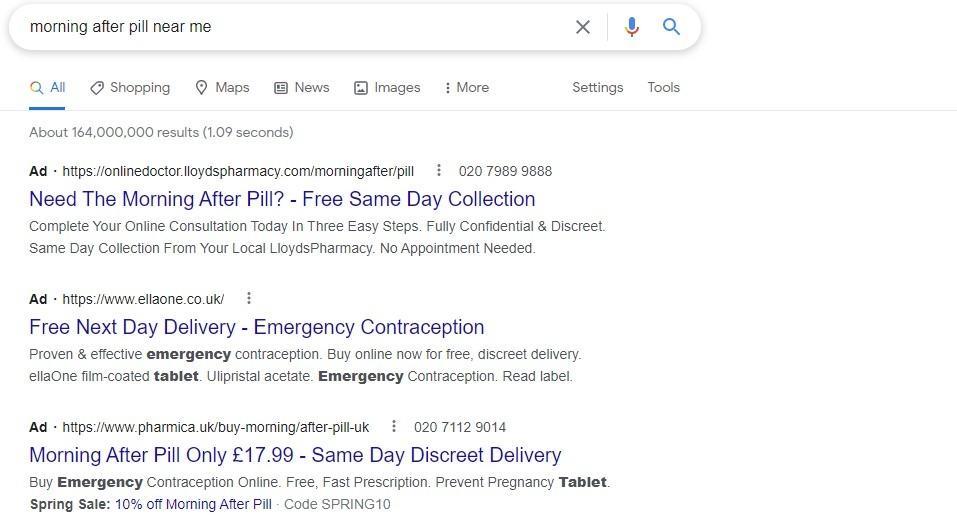
You can see the Ads dominate the top of the page. But a high percentage of online traffic goes to the organic results rather than clicking on Ads.
Off-page SEO – How that influences your recommendations
If on-page SEO is writing the book that Google recommends to people, off-page SEO is all the hype that book gets from other people.
- Do other people reference your book in their books? (Links from other websites to your page.)
- Is your book being read a lot without Google recommending it? (This is you sharing your content through social media and emails)
- Do your own books reference this book? (Does the homepage of your website have a link to this page? If you don’t consider it super-important, why should Google?)
It’s important not to neglect your off-page SEO. Here’s a simple reason why:
You want Google to think your website is great, right? Think about a book again. If someone handed you a book they wrote and told you it was great, you might read it and make your own mind up. If it’s #1 on the NY Times Bestseller List, is multiple award-winning, and sold millions of copies, you’re going to assume that the book is of good quality before you’ve even read it.
The same’s true for your website. The more that external sources direct people towards it, the better Google presumes the content from your site is and the more credit it gives you.
What can I do to get better off-page SEO?
That is a big, big topic. You can check out The Ultimate Guide to Off-Page SEO by Neil Patel, if only to demonstrate an example of off-page SEO in action. Neil Patel writes these helpful articles, and folks like me use them in situations like this. The more this happens, the more Google loves his site. And they do.
How does using SEO for your pharmacy help your business?
-
New Business from an active market.
People who are in the active market know they have a problem and need a solution. (They usually know what the solution is too.) Their search terms might be “rehydration sachets”. Writing content for this market can see immediate returns and lets people know where they can find you to give you money to solve their problem. They have a problem, they find your solution.
-
Activating a dormant market.
The dormant market often doesn’t know what their problem is yet, so they Google the symptoms of their problem. To continue the example, they search “how to cure a hangover”. They’re not sure of what their problem is yet (they’re dehydrated) but writing content like “10 ways to cure a hangover” reaches this market. One of the 10 ways could mention rehydration sachets, “…which you can get at our pharmacy”. Someone wasn’t looking for your product, but they’ve found it. That concludes my lecture ‘Activating a Dormant Market 101’.
-
Brand Awareness.
Especially for pharmacies, we’re in a transitionary period where public awareness still isn’t there for the services you offer. Sending people to your website to solve their current problems also gives you the opportunity to show them all the other things you offer. Someone comes to your website for a travel vaccine and sees you also offer lip fillers. They find you for one thing and are made aware of another. The more you can be discovered in any area, the better. Web traffic just has the benefit of being large volume, especially when you are ranked highly on the Search Engines Results Page for a common search. The numbers that a website with proper SEO delivers can’t be beaten for the investment.
What about Technical SEO?
Technical SEO has been left until last deliberately. It’s actually more important than ever. But it is a bit boring.
Search engines not only measure how good your on-page content is to rank you, but they also measure all the technical aspects of your website and content and compare it to best-practice. Because performance matters to user experience.
Think of on-page SEO as how a car looks, and off-page SEO as how a car runs. Someone might excitedly climb behind the wheel of a Lamborghini, but if it runs like an Austin Metro, they’ll quickly get out again.
For example, pages that load within two seconds have an average bounce rate of 9%, while pages that load in five seconds see their bounce rates skyrocket to 38%. (“Bounce” means visitors exit the page without interacting with it.) Below is an excerpt from a tweet from Google’s John Mueller.
Make sure they load fast, for your users. I often check https://t.co/s55K8Lrdmo and aim for <2-3 secs
— 🍌 John 🍌 (@JohnMu) November 26, 2016
I can tell you as someone whose focus is on-page SEO, Technical SEO is not something you want to get bogged down with. Unless you know what you’re doing, it is a long and painful headache. Getting your site built and managed by professionals is the easiest way to get rid of that headache.
So what now?
Hopefully, that’s given you a clear view of SEO and its importance. Do your own marketing? Please, please implement SEO into what you do. Outsource your marketing? You now understand its importance in the work that either we, or anyone else does for you. If an agency doesn’t offer satisfactory answers or results with SEO, it’s worth questioning why not. SEO isn’t ever a guarantee, but if your SEO isn’t delivering, you at least want a guarantee that making it better is a focus.


